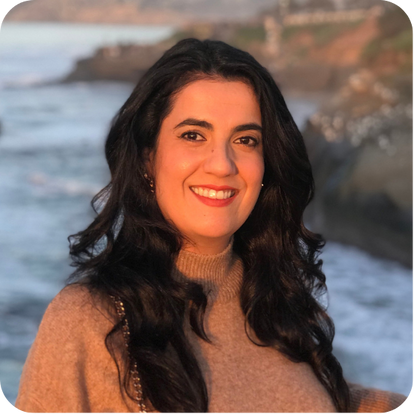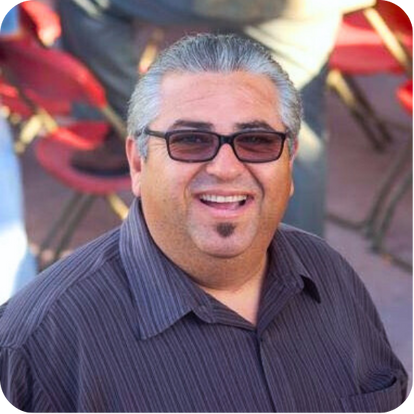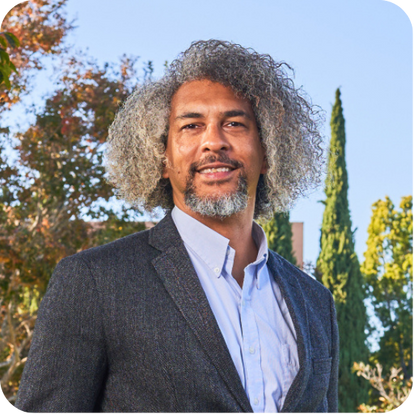Schedule & Program
9-10am
Check-in, Breakfast, Mingling
Check in, make your name tag, and enjoy a light breakfast on us! See the local vendors serving up delicious items in the morning.
10am-12pm
We’re honored to have an amazing lineup of speakers for this year’s intimate, two-hour program of stories, lectures, and dialogue.
“Mobilization” Program
Opening
Dr. Cynthia Larkin | Principal, Morse Senior High
Dr. Larkin began her career as a teacher at Morse Senior High, where she taught English for 13 years and Public Speaking for 6 years. Striving to make the curriculum relevant, rigorous, and engaging for her students, Larkin designed and taught a new course in the district: American Literature through the African American Perspective.
-
Dr. Larkin received her Bachelors of Arts degree in English and Doctorate in Educational Leadership from San Diego State University. She earned her teaching credential and Masters of Arts degree in Curriculum and Instruction from National University. She is also a National Board Certified Teacher in English Language Arts: Adolescence and Young Adulthood.
In 2013, Larkin obtained her Administrative Credential through SDSU/SDUSD Aspiring Administrators Program (Cohort III). Upon completion of the program, SDSU's Educational Leadership Department awarded Larkin the Learn, Lead, and Transform Outstanding Student Leadership Award. Larkin began her high school administrative career in January 2014, as a Vice Principal at Clairemont High School. In July 2017, Larkin, a devoted Tiger for Life, returned to Morse High School as principal.
Passionate about knowledge and growth, Larkin describes herself as a lifelong learner. As Morse's principal and instructional leader, Larkin believes that ALL students can thrive and achieve success, on an academic and personal level, both in and out of the classroom, when students are surrounded by nurturing and supportive stakeholders (educators, students, parents, and community members).
In her spare time, Larkin loves spending time with her family and friends; playing card and board games; and putting together jigsaw puzzles.
Kelsey O. Daniels | artist organizer baddie scholar
Kelsey O. Daniels (she/they) is an artist organizer baddie scholar from Southeastern San Diego, and an alum of Morse High. Her work centers on storytelling, world-building, and dreamwork as tools for liberation. As a fat Black queer disabled femme, Kelsey honors their ancestors and descendants by revoking consent from the failed experiment of white supremacy and dreaming up worlds that are affirming and lit.
-
Kelsey’s performances blend poetry, music, and storytelling, breaking the fourth wall to invite audiences into a participatory dream space where they co-create and engage in the unfolding narrative. In both their artistic practice and decolonized social research, they explore themes of identity, imagination, and ancestral memory, encouraging participants to engage in active relationships with themselves and their communities. As a cultural organizer, Kelsey curates Black Dream Experiment, a creative universe that explores Black dreaming as a collective practice of ancestral wellness and liberation. When not operating in their public roles, Kelsey enjoys going to the beach, cackling until their sides hurt, and listening to comfort playlists.
Amanda Subish | Pauma Band of Luiseño Indians
Amanda Subish is from the Pauma Band of Luiseño Indians, a dedicated mother of five, and a passionate farmer. Deeply rooted in her customs and traditions, Amanda is a tireless advocate for the inclusion and amplification of Native voices. She is committed to educating Native youth, nurturing and building future caretakers of the land. Through her work and daily life, Amanda strives to ensure that Indigenous perspectives are heard, respected, and valued in all spaces.
Lectures
Cultivate Justice • Mobilizing in a Human Rights Crisis
Mejgan Afshan | Co-founder, Borderlands for Equity
Mejgan Afshan is a proud Muslim, Afghan American, Civil Rights Advocate and the daughter of refugees from Afghanistan that were lifelong union members. She grew up in City Heights and East County and has over 20 years of experience in advocacy, community building & engagement, public policy, political campaigns, media and Democratic politics.
-
Mejgan has worked for then-Mayor Gavin Newsom of the City and County of San Francisco, then-Speaker of the House Congressmember Nancy Pelosi, the San Diego and California Democratic Parties, the Barona Tribal Government, the International Rescue Committee of San Diego, and Council of American-Islamic Relations. She has served on the boards of the San Diego Refugee Forum, the San Diego Immigrant Rights Consortium and Secure Justice. Mejgan loves exploring new cities, trying ethnic foods, roller skating, and is currently learning how to play pickleball.
-
Borderlands for Equity is an intersectional, pro bono, human rights nonprofit based in San Diego County. Over the past 5 years we have served our Borderlands region through advocacy, education, civic & youth engagement and community building. We represent those individuals who have been discriminated against on the basis of ethnicity, gender, race, political, religious and sexual orientation. Connecting community members with trusted partners via legal referrals is also a critical piece of our work. Borderlands for Equity continues to participate in the Neighborhood Solidarity Collective (rapid response network) and mobilizations in response to I.C.E. raids, detentions and court hearings of our local asylum seekers, immigrants and citizens. We are committed to bridging the gap between our most marginalized community members and their access to our collective resources and continuing to build a community more just and equitable for all.
Cultivate Justice • Building Power for Black Workers
Brisa L. Johnson | Executive Director, San Diego Black Worker Center
Born and raised in San Diego, Brisa completed an Associate’s Degree in Black Studies from San Diego Community College District, and a Bachelor’s Degree in Political Science from Point Loma Nazarene University. Previously working as the Civic Engagement Manager for Alliance San Diego, a community organization that builds coalitions to promote justice and social change, she ran large-scale voter engagement field programs winning six progressive policy battles and assisted in registering over 3,500 people in the County of San Diego.
-
Brisa later became the Civic Engagement Manager Statewide for, United Domestic Workers, the Homecare Providers Union, engaging and training union members throughout California on Civic Engagement strategies, while educating Member voters on local and State campaigns. In addition to her work in Civic Engagement, she has spearheaded the creation of the San Diego Black Worker Center in partnership with United Domestic Workers, bringing together a Steering Committee consisting of local, multifaceted Black professionals in the public and private sectors for the purpose of creating the San Diego Black worker Center.
In addition to her role as the Director of the San Diego Black Worker Center, she currently serves as Board Member for the San Diego Workforce Partnership, an organization empowering job seekers to meet the current and future workforce needs of employers in San Diego.
Separately from her career in the Social Justice field, she is the lead singer of San Diego’s award-winning band The Lyrical Groove and has wrote and produced her own solo project titled “In Her Stillness…” . Lastly, she is the Mother of a young King named Josiah Rai, who has kept her extremely grounded.
-
The San Diego Black Worker Center is a home for Black people to build Black Power and create their own seats at the table. They aim to improve Black lives within the workforce by focusing on developing and accessing quality jobs. By addressing discrimination in the workplace and redefining the meaning and possibilities of an equitable economy, San Diego will build new layers of Black power.
The SDBWC mission is to build a more equitable economy for Black workers across the diaspora and to advance the Black Worker Justice Movement! The SDBWC organizes people power, improves job quality through policy advocacy, and fights for workers’ rights.
Fight Climate Change • A Just Transition for People & Planet
José T. Bravo | Executive Director, Just Transition Alliance
José T. Bravo is a veteran environmental justice organizer and executive director of the Just Transition Alliance where for more than 20 years, he has led a coalition of environmental justice and labor organizations to work with frontline workers and community members who live along the fencelines of polluting industries in creating healthy workplaces and communities. Born in México and brought to the U.S. as a child, José’s work in social justice issues is rooted in his upbringing in Southern California’s avocado fields alongside his farmworker parents.
-
José has participated in the environmental justice movement since 1990 and has been involved in drafting the Environmental Justice Principles and the Jemez Principles of Democratic Organizing. José has sat on the National Environmental Justice Advisory Council for the U.S. Environmental Protection Agency and is presently the National Coordinator of the Campaign for Healthier Solutions.
-
Since 1997, the Just Transition Alliance (JTA) has brought together environmental justice groups and local unions to tackle polluting extractive industries causing harm to communities and workers. For three decades, JTA has built alignment between the people of color, Indigenous, migrant and poor communities first and most harmed by such industrial impacts and the workers in these industries by sharing vision, principled practice and power.
Their vision is to cultivate widespread grassroots capacity to organize just transition strategies for solidarity economies at appropriate local or regional scales that are designed, built and governed by those workers and communities on the frontlines and fencelines of harmful production. Their work is grounded in building relationships with workers in polluting industries and communities affected by those industries. Strengthening collaboration between these groups to activate just transition pathways away from toxic processes and towards safe, dignified and deeply rewarding livelihoods.
At a time when “just transition” has become a popular buzzword, JTA stands firm in taking back our narrative, insisting that a true just transition will always move us toward an economy that is not only safer and healthier, but also democratically self-determined, with those first and most harmed having the first and most say in which solutions should be pursued and how to achieve them.
Build Resilience • Our Journey to a Solidarity Economy
Khea Pollard
Khea Pollard is a builder of economic resilience, born and raised in Southeastern San Diego and deeply influenced by ageless wisdom teachings from across the globe. Driven by timeless principles and practices, Khea has developed and led several guaranteed income programs as former Director of Economic Mobility and Opportunity at Jewish Family Service of San Diego - including the San Diego for Every Child Guaranteed Income Program, the first guaranteed income pilot in San Diego County. She is also the founder and co-owner of beloved local coffee shop and community hub Café X: By Any Beans Necessary.
-
Before joining Jewish Family Service, Khea served as a Justice Program Manager for the National Association of Counties, where she focused on behavioral health, criminal justice reform, and racial equity. Locally, she was the Health and Human Services Policy Advisor to Supervisor Greg Cox at the County of San Diego. This summer, Khea is embarking on a phase of new beginnings, collaborating with like-minded partners to build more resilient communities across the US and abroad.
Panel (all speakers, Audience Q&A)
Dr. Derrick Robinson | University of California Cooperative Extension
Dr. Derrick Robinson is the University of California Cooperative Extension Advisor, focusing on Urban Agriculture, Food Systems, and Environmental Issues. In his current position, he does research related to workers’ rights, poverty and income distribution, household wages and employment valuation, and increasing community economic welfare.
-
Dr. Robinson recently served as Senior Research and Policy Analyst at the Center on Policy Initiatives. He has previously worked as a research economist and professor for the University of San Diego; University of California, Agriculture & Natural Resources; University of North Florida; Tuskegee University; Mississippi Alabama Sea Grant Consortium; and Auburn University.
In his current position, he does research related to workers’ rights, poverty and income distribution, household wages and employment valuation, and increasing community economic welfare. He uses this information to advise development of governmental policy, programs and activities to increase food, housing and economic security for communities with the intention of increasing positive outcomes for workers, youth, families, and communities.
Closing Performance
Janice Luna Reynoso & Giovanni Mejia
Janice Luna Reynoso is a longtime community leader in Southeastern San Diego involved in projects focused on social justice, community gardening, and health equity. Her co-performer, Giovanni Mejia, is a guitarist with deep San Diego roots, one half of the local group Dulcet. He is a former guitarist with B-Side Players, and played alongside well known activist Ramon “Chunky” Sanchez.
12-2pm
Community Picnic (BYOP and purchase from local vendors)
Bring your own picnic, and purchase from local food vendors who will be onsite! See the local vendors serving up delicious items for lunch.
Local food has always been central to the Annual Gathering and this year is no different. We’re highlighting small, local food businesses and vendors from across San Diego County—especially from the community of Southeastern San Diego that surrounds this year’s venue.
All Movements Connected
This program touches on the three goals of San Diego County Food Vision 2030:
Cultivate Justice
Fight Climate Change
Build Resilience
While the speakers of this year’s Gathering come from all different journeys of mobilizing, both within the food system and beyond it, it’s clear that all of our liberatory movements are deeply connected. At the core of our mission to cultivate a more just and resilient food system is the true crux of all our fights: to honor each person’s humanity, self-sovereignty, dignity, and agency.
We are thrilled about these speakers and topics and hope to create a space that feels both restorative and energizing for all!









